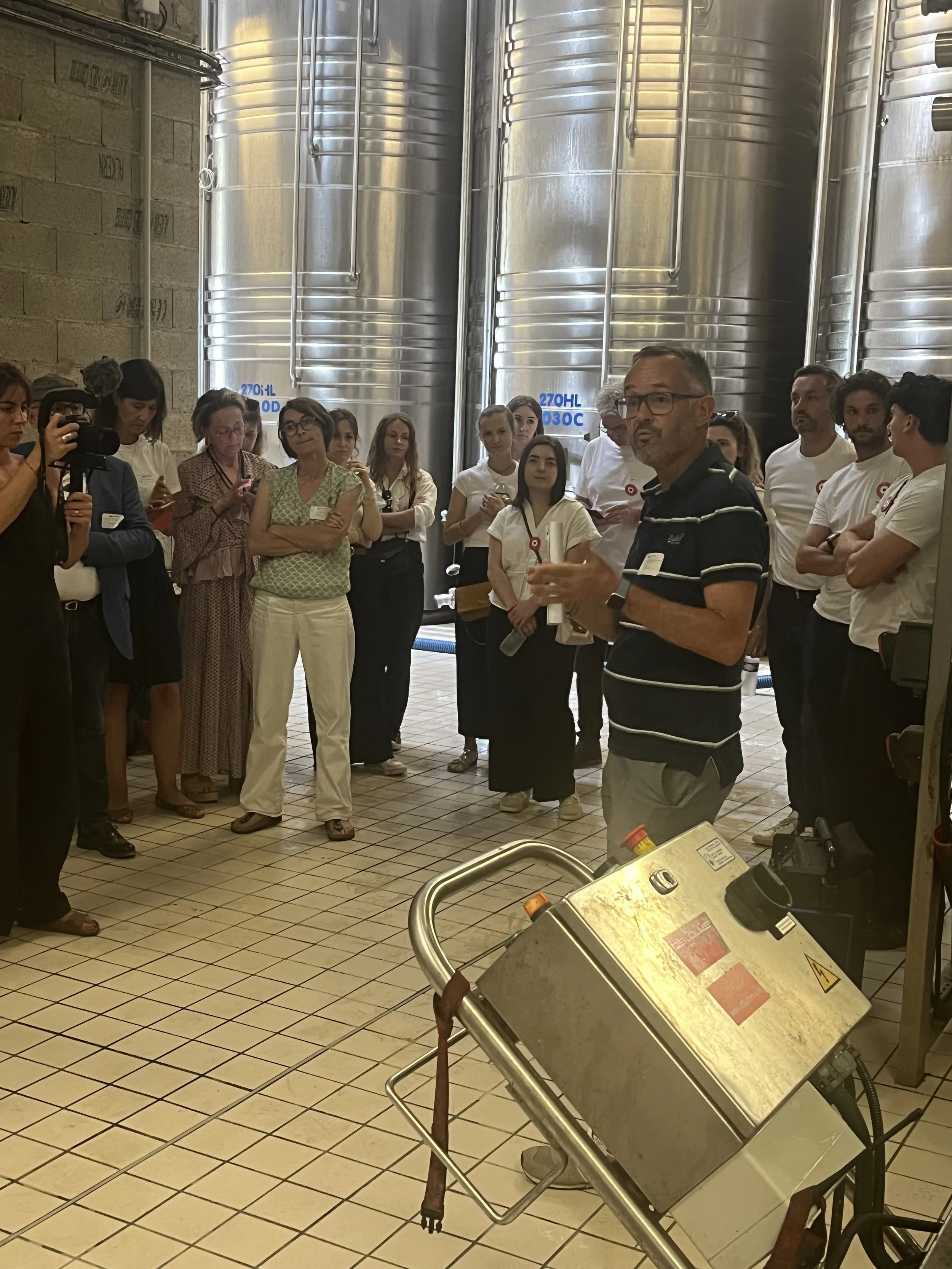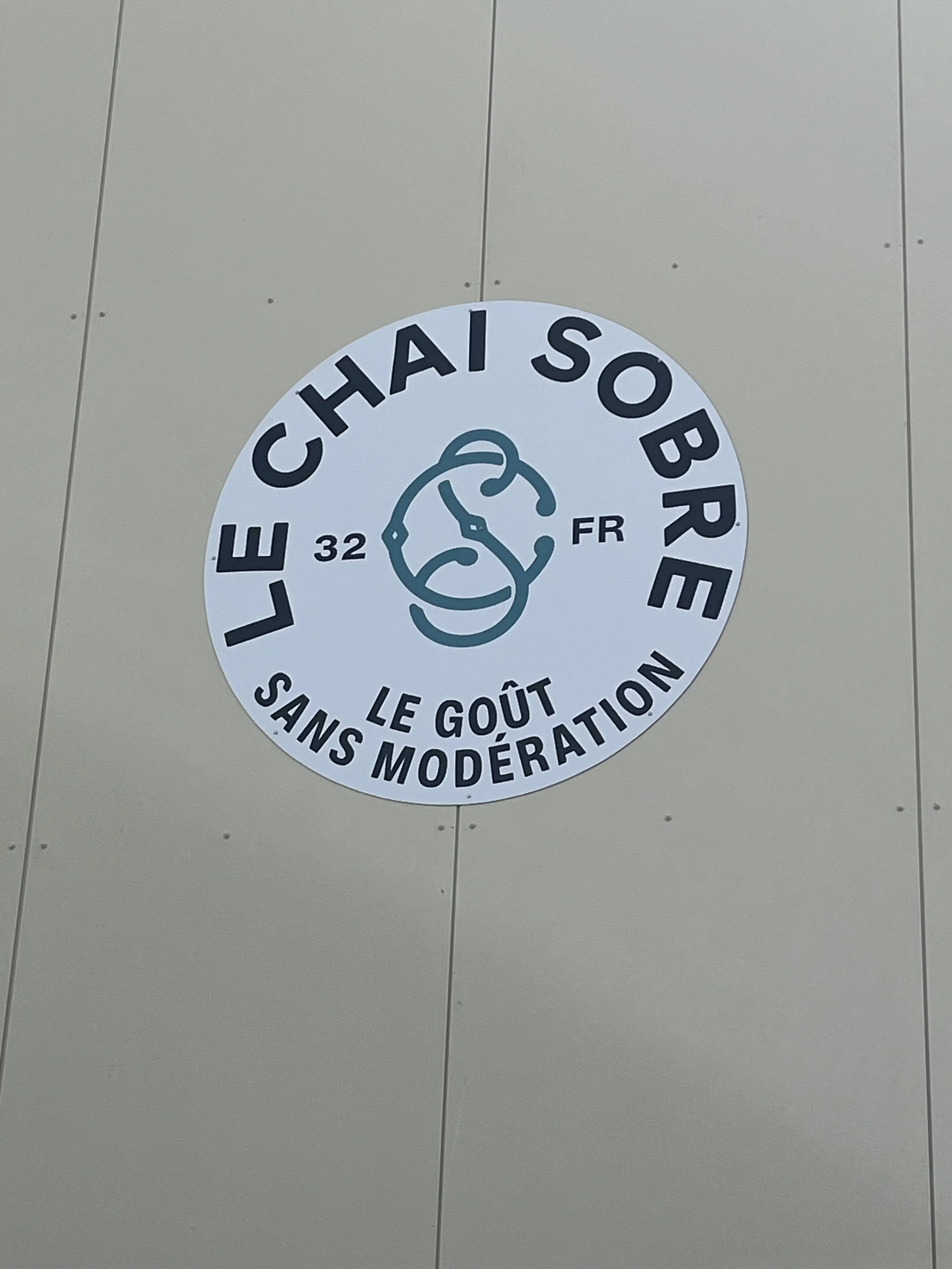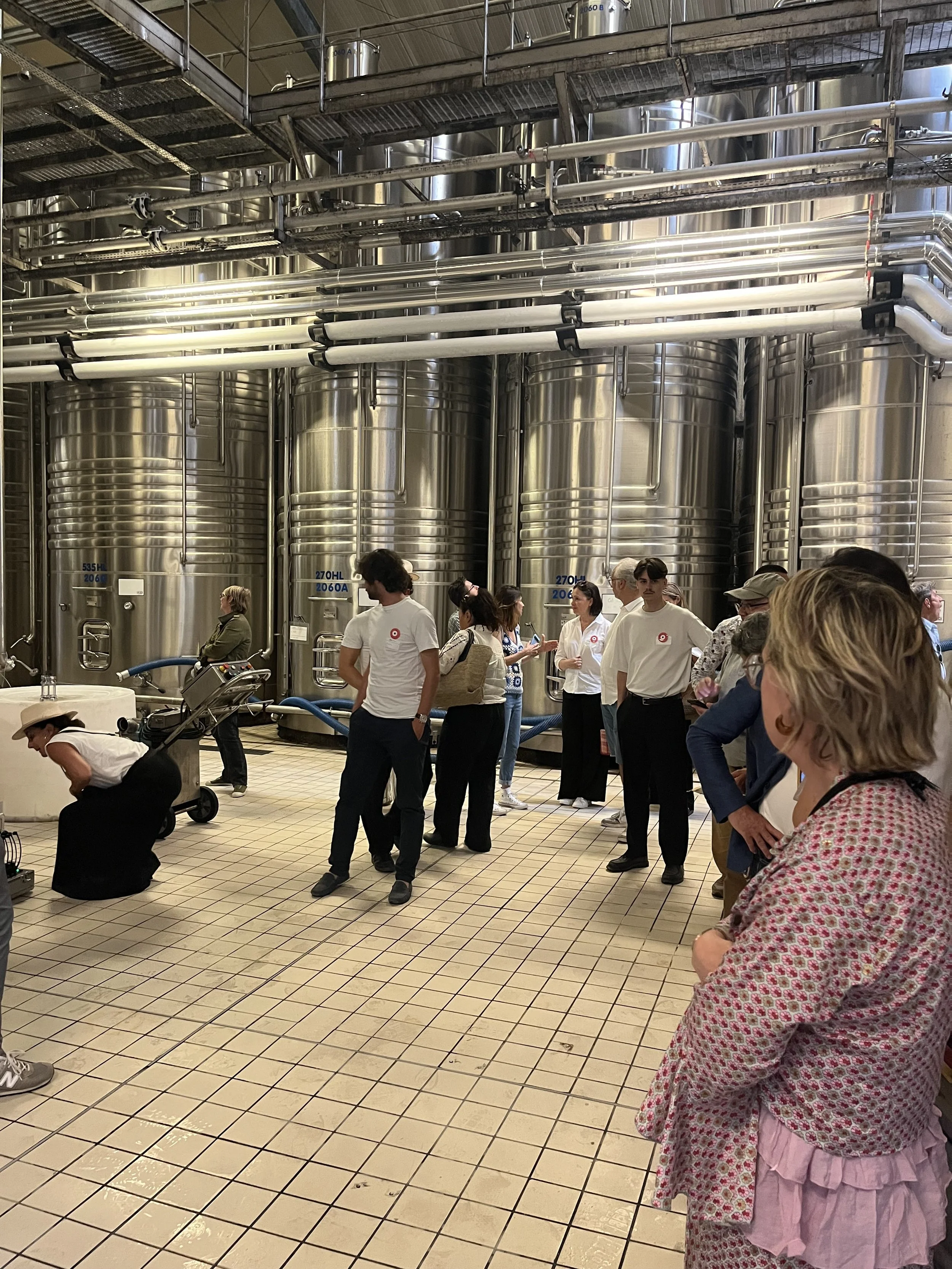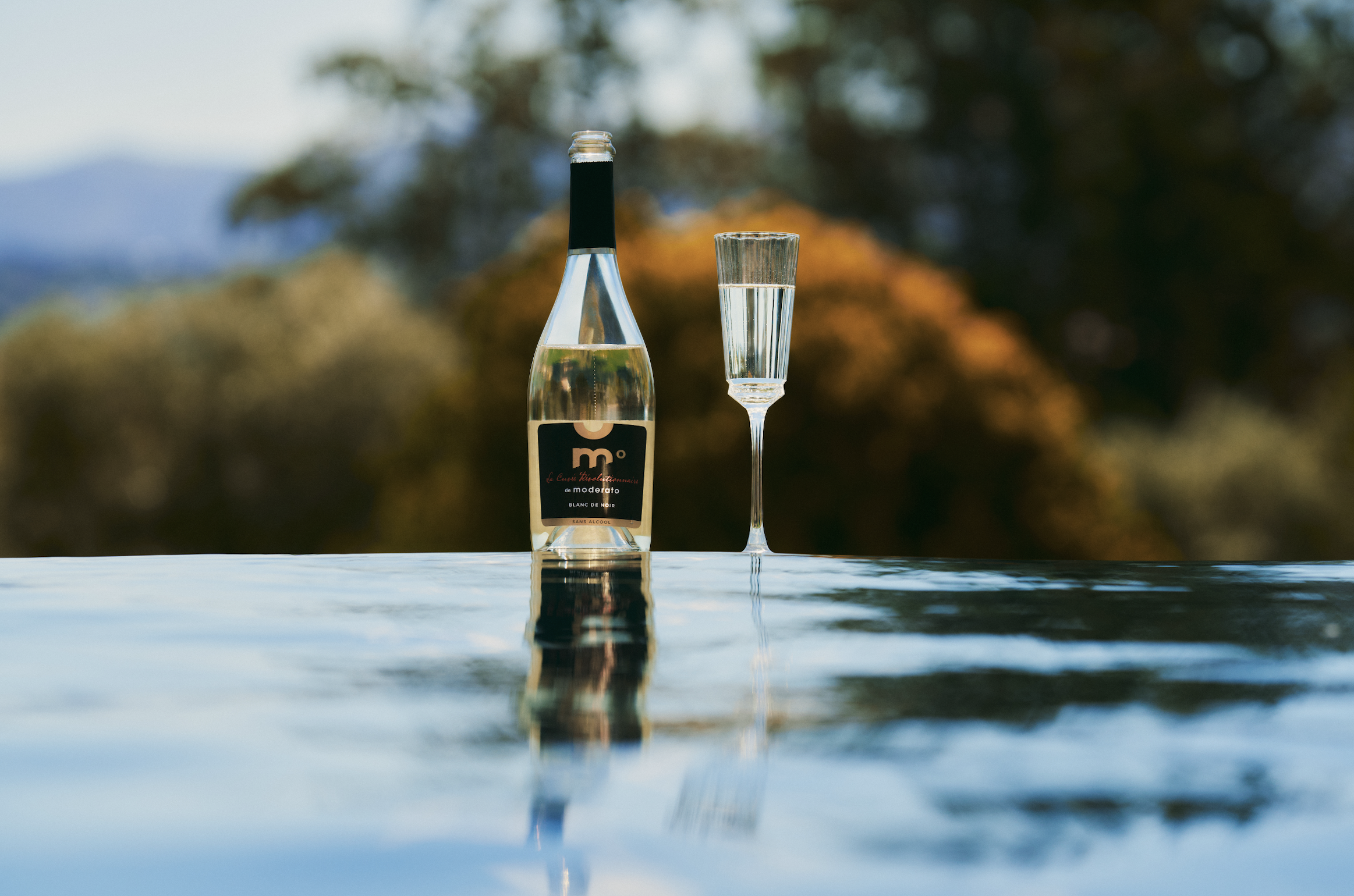Moderato Changes Wine, Not Replaces It
Photo: Moderato
What if you could enjoy wine without the alcohol, and without losing the flavor, the feeling, or the ritual? In France, Moderato Wines is making that possible. I spoke to co-founder Fabien Marchand-Cassagne to understand how they are using technology, tradition, and a lot of care to shape the future of wine.
Why Remove Alcohol from Wine?
At a time when tradition and transformation often clash, Moderato Wines proves that innovation and authenticity can go hand in hand.
I recently spoke with Fabien Marchand-Cassagne, co-founder of Moderato, about the ideas behind their alcohol-free wines and their new dealcoholization center, Le Chai Sobre. What I found was not just a technical achievement but a thoughtful attempt to protect the culture of wine itself.
"We started Moderato not because we had a problem with alcohol," Fabien told me, "but because we love wine. And we realized that there are more and more moments when we prefer to avoid alcohol but not the wine experience."
That tension between the craft of wine and the social expectations around alcohol was central to our conversation. Fabien and his team are working to make space for both.
Sébastien and Fabien, co-founders of moderato. Photo: Moderato
“In some of our wines, like our Cuvée Révolutionnaire range, we recover the lightest aromas that escape with the alcohol. We use resin to bind the alcohol and separate it from the aromas, which we then reintegrate into the wine.”
Born in the most tradition-bound wine regions
All wines of moderato come from the South West of France, Bordeaux and beyond, one of the most tradition-bound wine regions in the world. "Launching an alcohol-free wine here was an act of boldness," Fabien admitted. "It wasn’t easy at first. The idea of alcohol-free wine raised some eyebrows. But once people understood that we start with real wine and work carefully to preserve its terroir and complexity, their mindset began to shift."
That mindset shift has been slow but steady. "Now the OIV officially recognizes dealcoholized wines as wine," Fabien said. "And that changes everything."
Editor’s Note:
In 2021, the International Organisation of Vine and Wine (OIV) officially recognized dealcoholized and partially dealcoholized wines as legitimate wine categories. This marked a major step in giving alcohol-free wines a clear legal and technical framework. It also paved the way for innovation while still respecting the core values of traditional winemaking.
For more information, visit the OIV at www.oiv.int.
Rebuilding Aromas
Moderato uses a gentle vacuum distillation process to remove alcohol while keeping the aroma and structure of the wine. Fabien explained that they chose this method over reverse osmosis because it better maintains the wine's character, especially when reducing alcohol to zero.
"Reverse osmosis can work well when you're just lowering alcohol from, say, 13 to 8 or 7 percent," he said. "But to go all the way to zero, it often gives a watery impression, as if the wine has been diluted. Not everyone notices it, but that’s my perception."
“In some of our wines, like our Cuvée Révolutionnaire range,” Fabien explained, “we recover the lightest aromas that escape with the alcohol. We use resin to bind the alcohol and separate it from the aromas, which we then reintegrate into the wine.”
Photo: Moderato
The result is a non-alcoholic wine that can sometimes be even more aromatic than the original. This method is expensive and therefore used only for their most expressive cuvées, where preserving nuance is essential.
He added with a smile, "You end up with 87 percent of the volume but 100 percent of the aroma."
Le Chai Sobre
Le Chai Sobre, their newly opened dealcoholization center in Vic-Fezensac, is part winery, part lab, and part social project. "We got an abandoned cellar," Fabien said. "It’s not just about wine. It’s about bringing life back into a village."
The facility was co-founded with the Vivadour cooperative group and is France’s first industrial site dedicated to producing alcohol-free and low-alcohol wines. It processes between 50,000 and 80,000 hectoliters per year using vacuum distillation and is equipped with a COFRAC-accredited laboratory (Editors note: meaning it meets France’s highest standards for testing accuracy and quality.)
Le Chai Sobre not only serves Moderato’s own wines but also supports other producers, making dealcoholization more accessible and local.
Their approach feels deeply rooted in care. Moderato isn't trying to replace traditional wine. They are offering a new path forward for winemakers and consumers alike.
"We don’t want to compete with the wine industry," Fabien told me. "We want to be part of it. We work with winemakers. We know where the grapes come from, which plots, which soils. It’s real wine, just without alcohol."
He pointed out that 95 percent of their online customers are not abstainers. "They’re regular wine drinkers who want to balance their lifestyle. They drink alcohol on Friday and Moderato on Saturday."
Wine for Every Moment
"Alcohol has always been part of our culture," Fabien said. "But that doesn't mean it has to be the only way we enjoy wine. People are more conscious now about their health and how they socialize."
“We tested over 100 wines in the lab just to learn how different profiles react to dealcoholization, this is a young science. Wine is 5,000 years old. Alcohol-free wine is maybe 10-20 years old. We are just getting started.”
He reminded me that in France, wine was served in schools until the 1950s, and the army gave out cigarettes until the 1970s. "Now there is a new awareness. People are starting to talk openly about alcohol. There’s less stigma. And more people are saying: I want to drink less but still enjoy the ritual."
Fabien also pointed out that alcohol can be exclusive. "If you're not drinking, you're excluded from the party. Especially in France, if you say 'no thanks,' you have to explain yourself. We want to change that."
"We don’t differentiate by consumer, but by moment," he said. "Our original cuvée is for everyday enjoyment. Our prestige cuvée, which we call Cuvée Révolutionnaire, is for more elevated occasions. It appeals to sommeliers and connoisseurs."
Lab Lessons
When I asked about the challenges of working with different grape varieties, Fabien was honest. "You can't just take a bad wine and make it better by removing the alcohol. That never works. You need a strong aromatic profile to begin with. Aromatic grapes like Colombard, Sauvignon Blanc, or Cabernet work better. Pinot Noir and Chardonnay are beautiful grapes, but they need extra help like aging in oak to shine without alcohol."
"We tested over 100 wines in the lab just to learn how different profiles react to dealcoholization," Fabien said. "This is a young science. Wine is 5,000 years old. Alcohol-free wine is maybe 10-20 years old. We are just getting started."
“We’re trying to show sommeliers that this isn’t a compromise. It’s a business opportunity. That’s money left on the table otherwise, especially if the guest ends up ordering just water or a soda instead.”
A New Way to Serve Guests
Søren Kirketerp, founder of the Danish NOLO Collective and a DSF sponsor, joined our conversation and shared a telling example from Copenhagen. After training the team and introducing a proper NOLO menu, one restaurant saw its alcohol-free wine sales grow tenfold compared to the same month the year before.
It’s a reminder that success in this space is not just about creating great products. It’s also about how we present them. Moderato is helping to reshape hospitality at a time when wellness, inclusion, and mindful choices are becoming more important than ever.
“We’re trying to show sommeliers that this isn’t a compromise,” Søren added. “It’s a business opportunity. That’s money left on the table otherwise, especially if the guest ends up ordering just water or a soda instead.”
Photo: Moderato
For Moderato, transparency is key. The wines come in traditional 750 ml bottles, with classic labels and closures. "We want people to feel confident. This looks like wine, it tastes like wine, and it is wine. Just without alcohol."
Moderato recently won a gold medal for their oak-aged Chardonnay. And this September, they will launch the first-ever dealcoholized wine from a major Bordeaux château, under its original label.
"That’s going to make waves," Fabien said. "It shows that even the most traditional estates are ready to explore this space."
After our conversation, I walked away with a sense of clarity. Moderato is not trying to replace traditional wine. They want wine to stay relevant as our habits and needs change. For people who love wine, for winemakers, and for those who want the experience without the alcohol, they are creating new possibilities.
And for me as a sommelier, that is something worth paying attention to.








